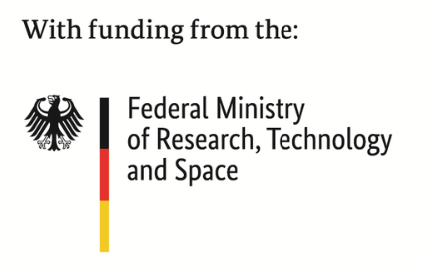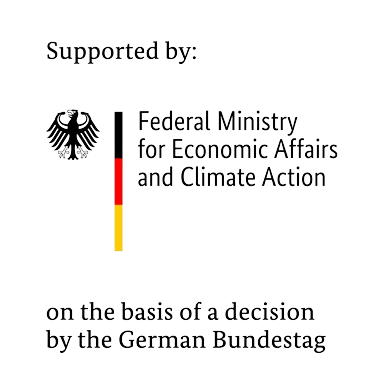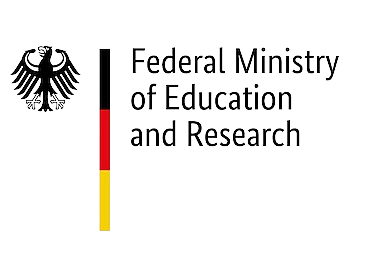

Project Partners:
- SG Partner: Nanyang Technological University (NTU); ALBA Singapore SC Ltd.
- DE Partner: Brandenburgische Technische Universität Cottbus-Senftenberg (BTU); TU Bergakademie Freiberg (TUBAF); Air Liquide Global E&C Solutions Germany GmbH.
Chemical recycling via gasification allows mixed, unsorted, and difficult-to-recycle carbon-containing waste streams (e.g., municipal solid waste, sewage sludge, agricultural residues, etc.) to be recycled into chemical production as alternative raw materials for the production of high-value chemical products such as carbon monoxide, hydrogen, methanol, ammonia, sustainable aviation fuel (SAF), etc. As an emerging technology, waste gasification not only faces technical challenges, but also the questions of economic feasibility and environmental benefits compared to conventional waste management (especially waste incineration) as well as alternative paths to decarbonization and circular economy in the chemical sector (especially electrification and Carbon Capture, Utilization & Storage/CCUS) have not yet been conclusively answered. In addition to the technological-economic-ecological aspects, a systemic approach that considers the socio-political dimensions is also necessary to increase the Technology Readiness Level (TRL) of waste gasification.
Since it has the potential to simultaneously achieve multiple sustainability goals, ranging from resource efficiency, circular economy, decarbonization, and reducing negative environmental impacts to security of supply and increased resilience to disruptions in international supply chains, the CR-Waste2Products project pursues a systemic and multidimensional socio-technological-economical-ecological-political (STEEP) approach to address the aforementioned gaps and increase the TRL from 3 to 5.
Within a 3 years project from 01.10.2025 – 30.09.2028, CR-Waste2Products aims to develop new knowledge and expertise through synergies between Singaporean and German partners for innovative solutions in the field of waste gasification that can be implemented in major cities and metropolitan regions of Germany and Singapore, as well as contributing to the transference to other countries. In the project, the gasification of various waste streams will be investigated and evaluated along the technological, economic, ecological, and socio-political dimension (STEEP-approach):
- Within the technological dimension, detailed research into existing technologies on the market will be conducted. In addition, potential waste streams will be analytically characterized to determine their suitability for gasification.
- The economic analysis will focus on the identification of available waste streams and their available scale, as well as on a comprehensive techno-economic analysis of the utilization of these residual materials into new products using thermodynamic modeling.
- For the ecological assessment, life cycle analyses of the considered innovative utilization pathways will be conducted and compared with conventional waste management pathways.
- The close collaboration of the German and Singaporean partners in the above three dimensions will be further strengthened in the socio-political dimension through joint networking, intensive exchange, and science communication.
The subproject "Socio-political assessment of chemical recycling processes" by the BTU will focus on the initiation of a SG-NK2 Network, the coordination of network activities between Singapore and German partners as well as the conceptualization and generation of science communication materials; in addition to supporting activities in the sub-project “Techno-economic assessment of gasification-based processes for chemical recycling” by the Professorship for Energy Process Engineering (EVT) at the Institute of Energy Process Engineering and Chemical Engineering (IEC), TU Bergakademie Freiberg.


The German Federal Ministry of Environment (since 2023 the German Federal Ministry for Economics and Climate Action) is supporting the BTU Cottbus with a funding of about 1.6 Mio. EUR to establish a new Chair on “Decarbonization and Transformation of Industry” to provide important impulses for research and teaching in the fields of decarbonization and sustainability.
More information under: https://www.b-tu.de/news/artikel/18998-die-btu-cottbus-senftenberg-erhaelt-lehrstuhl-fuer-dekarbonisierung-und-transformation-der-industrie


China is at the beginning of its transformation from a linear to a circular economy. The growing global interest in chemical recycling (CR) is driven by its potential contribution to this transformation as well as to resolving other current challenges such as the global (plastic) waste crisis, primary resource conservation, supply security and CO2 reduction. However, while many publications have focused on the technical implementation of CR, there is currently a lack of information about the societal, social, economic and innovation-political aspects for its implementation in China.
To address this gap, the CRC3-Economy project focuses on (1) identifying the status quo in China's waste management and chemical industries in the transition to a circular carbon economy as well as the effects of CR on the climate, environment and society, (2) Analysis of CR in the context of Chinese innovation policy along the institutional and human dimensions, (3) comparison of various innovation policy instruments in China and Germany based on the example of CR, and (4) developing recommendations for increasing public, market and political support based on the example of CR.
CRC3 Economy therefore addresses current issues that are not only relevant for China, but also for Germany and global society. In addition to key players in the circular carbon economy, the general public in China will also be integrated in the project in order to provide well-founded insights that go beyond the scientific perspective and have practical relevance. To ensure that research results can be used sustainablafter the project, the German NK2 network for a Circular Carbon Economy is integrated as dialogue partners/multipliers to promote the transfer of new knowledge gained in science, economy and politics in Germany/the EU.
